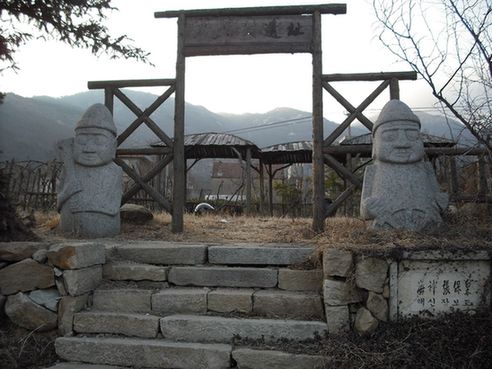 |
| [Photo/www.agri.com.cn] |
The Suchen town in Lianyungang was an important trading port for the economic and cultural exchanges between China and Silla (Korea) through the ancient Maritime Silk Road in history.
Jang Bogo (787-846), known as the Emperor of the Sea in Korea, used to set up a Silla Station (similar to consulate general today) in Sucheng as the town was the only route for Silla merchant fleets to China.
The Silla Station offered logistics support for fleets from Silla and provided services such as sailors, shipping fleets and goods storage for private traders. It functioned as an intermediary location for maritime trade between China, Silla and Japan.
The establishment of the Silla Station attracted a large number of Silla natives to Sucheng in Lianyungang during the Tang Dynasty. Some moved to Sucheng to work as officers; some run water transport business and some practiced Buddhism. Some of them also settled down in Sucheng through intermarriages with Chinese partners.
As Silla people kept coming and forming a community, a Silla village gradually came about in Sucheng.
In July, 1999, four Korean professors paid a special inspection tour to the site of Silla Village in Sucheng and erected a stone with words reading "Residential site of Silla people in Sucheng village".
For a scholar focusing on Australia's public diplomacy, working as a recreational manager in China may never be part of his career path. But Bradley McConachie does have lots to say now about his special experience at a resort in the picturesque tropical coastal city of Sanya in South China's Hainan province.

One of the potentially most traumatic things a girl has to go through is finding a new hairdresser.